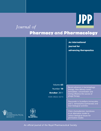Effect of chronic supplementation with methylsulfonylmethane on oxidative stress following acute exercise in untrained healthy men
Abstract
Objective This study was conducted to assess the effects of chronic daily methylsulfonylmethane (MSM) supplementation on known markers of oxidative stress following acute bouts of exercise in untrained healthy young men.
Methods Eighteen untrained men volunteered for this study. Participants were randomized in a double-blind placebo-controlled fashion into two groups: MSM (n = 9) and placebo (n = 9). The participants took supplementation or placebo daily for 10 days before running. Participants ran 14 km. The MSM supplementation was prepared in water at 50 mg/kg body weight. The placebo group received water. Serum malondialdehyde (MDA), protein carbonyl (PC) and plasma oxidized glutathione (GSSG) were measured as markers of oxidative stress. The plasma-reduced glutathione (GSH) level and the GSH/GSSG ratio were determined as markers of plasma antioxidant capacity.
Key Findings Acute exercise led to elevated levels of serum MDA, PC and plasma GSSG. MSM supplementation maintained PC, MDA and GSSG at lower levels after exercise than the placebo. The plasma level of GSH and the ratio of GSH/GSSG were significantly higher in the MSM supplemented group.
Conclusions These results suggest that chronic daily oral supplementation of MSM has alleviating effects on known markers of oxidative stress following acute bouts of exercise in healthy young men.




